A Look at Orphan Annie Through Poetry, Stage, and Movies
Our local paper runs a column on history, and every morning, I like to review the notable events that happened on that date. Yesterday, I read that on April 21, 1977, Annie opened on Broadway, and its run totaled 2,377 performances. This started me on a path of Annie reminiscence, and it grew into this post.
Annie in Poetry
Many people know that the musical was based on the “Little Orphan Annie” comic strip, but they might not know that the comic strip was based on an 1885 children’s poem, which was based on a real little girl. In grade school I memorized James Whitcomb Riley’s 1885 poem “Little Orphant Annie” for in-class recitation, which contained the memorable: “An’ the Gobble-uns’ll git you ef you don’t watch out!”
I always felt an affinity to the Annie character, my name being Ann, (Annie when I was a child), and my strong belief that I was adopted, despite my strong resemblance to both of my parents.
Annie on Stage
Sometime in the early 1980s, my aunt and uncle went to see Annie in Los Angeles, and that’s the first time I heard about the musical. After hearing the song, “Tomorrow,” on the radio, I bought the album and played it about a million times before ever hearing the piece in a theater.
The first time I had the opportunity to see Annie was through a touring production in Buffalo, NY. Then, in 1992, my daughter played the youngest orphan, Mollie, at our local playhouse. In subsequent years, the touring companies came to our hometown and our local theatre has repeated it several times, usually around Christmas, of course.
In 2012, my daughter, who played Mollie two decades’ earlier, and I attended the revival on Broadway, celebrating the 35th anniversary. Over a span of little more than a year, that revival played nearly 500 times. Read my review, “Annie Revival Lights Up Broadway.”
I’ve noticed, over the years, an attempt to appeal to contemporary audiences by tweaking the songs and the dialogue. This is ineffective, because when the play first opened, it was already depicting a time period, decades before. In the 2012 revival, the orphans’ Brooklyn accents were very pronounced and that was distracting. Nothing against Brooklyn accents, but I’m quite sure these were not genuine.
Annie in the Movies
Now, let’s talk about the three movie versions released in 1982, 1999, and 2014. Imagine my anticipation before the first Annie film came to our local theater in 1982. I counted down the days until its first showing. Some friends of ours came with us, and we got to the theater early, because I anticipated a long line. There was no line, and we were among the very few in the seats. As much as I tried to like the movie, I found it very disappointing. I didn’t like the fact that some songs had been deleted and new ones were added to give Carol Burnett and Albert Finney screen time.
I also thought it was odd that Aileen Quinn, who played Annie, claimed in a television interview that she decided to sing “Tomorrow” in a soft voice. I’m quite sure directors don’t give a child that kind of latitude. I also couldn’t connect with the raspy voice of Ann Reinking playing Grace Farrell, who is depicted as sweet and wholesome in the musical. And then there was Punjab. To try to make a hybrid out of the musical and the comic strip was folly.
The 1999 made-for-television movie followed the original script more closely, and I enjoyed it much more than the 1982 version. I watched it recently and loved seeing Modern Family’s Sarah Hyland as Molly. I’d recommend this one, if you’d like to see a pretty close replica of the Broadway musical.
Finally, the 2014 movie version. After my rather strong views above and after my negative experience with the 1982 Annie, I entered the theater with skepticism. A few minutes into the film, I realized that a LOT had been changed, and it was wonderful. It was credible, because so much care had been taken into keeping the rags-to-riches theme, but making the plot totally contemporary. It left me as sentimental as my first experience with the stage production decades before. The music is updated, but still recognizable, and the finale is uplifting. I liked it so much, that I put the Blu-ray on my Christmas list that year.
In the 2014 movie, Annie, played by Quvenzhané Wallis, is a bit wiser than the original Andrea McArdle, but she still emotes the same steadfast optimism. Jamie Foxx as Will Stacks (Daddy Warbucks) is a tough businessman, but quite a softy when it comes to Annie. Cameron Diaz is rough, but vulnerable, in her portrayal as Miss Hannigan, and Rose Byrne is sweet, just as she ought to be, as Grace. There’s more about this version in my 2014 post, “7 Things to Like About Annie 2014.”
For young people, who think they’re adopted, or wish they were, the 2014 version contains many valuable messages, such as when Stacks sings, “Now’s the time you gotta stand tough. Cause if you work hard, you can rise up.”
You can be sure this won’t be the last time Annie is revived in one form or another. I wonder if James Whitcomb Riley ever dreamed that although his name might be forgotten, his “Little Orphant Annie” would outlive him by (at least) more than a century.
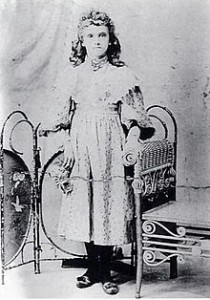
Disclaimer: I am a DVD Nation director, which earns me rewards from DVD Netflix. DVD.Netflix.com has thousands of movies to choose from, many that you won’t find on streaming services.#DVDNation #ad

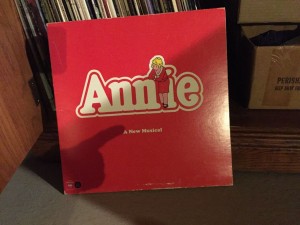
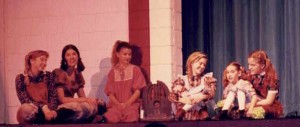
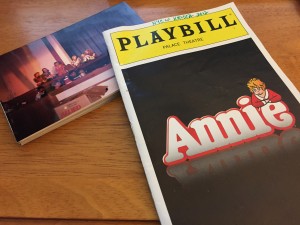
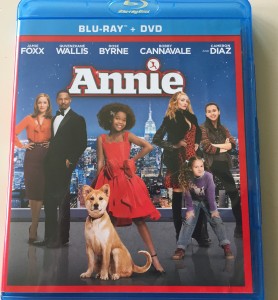



Leave a Reply